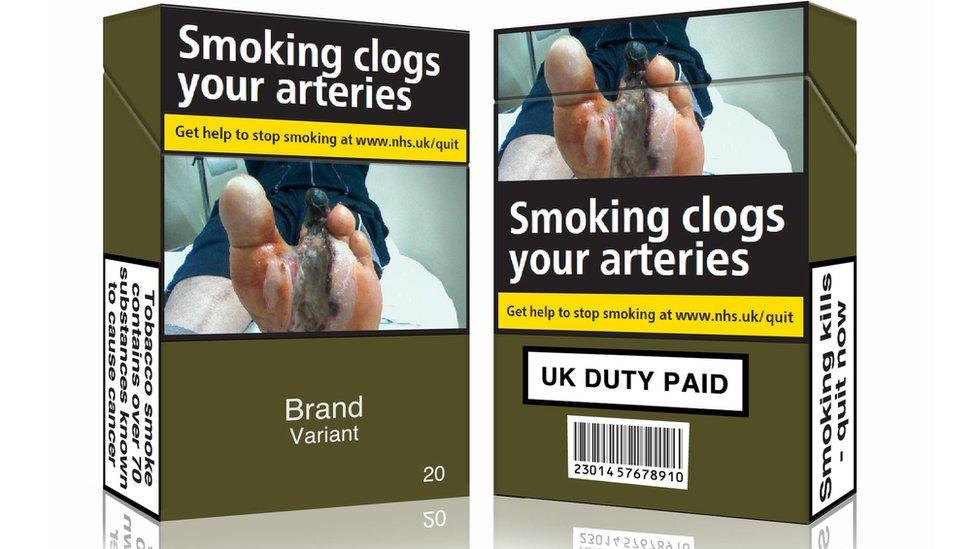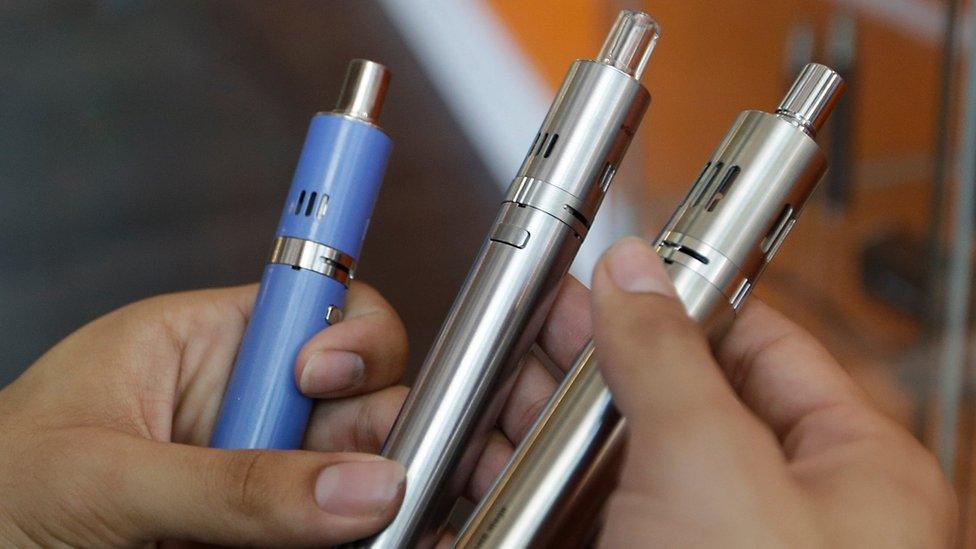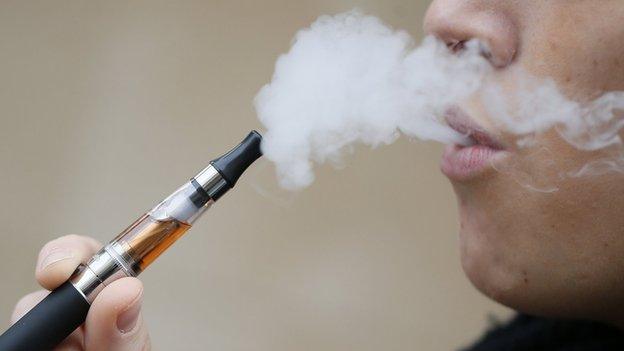Tobacco laws: Bid to overturn packaging rules dismissed
- Published

Uniform packaging rules for tobacco will be introduced on Friday after a legal challenge against the new law was dismissed by the High Court.
The case was brought by four of the world's biggest tobacco firms, Philip Morris International, British American Tobacco, Imperial Tobacco and Japan Tobacco International.
But Mr Justice Green dismissed all their grounds of challenge.
The government said it meant a generation would "grow up smoke-free".
Two of the companies have said they will appeal against the ruling.
Health Secretary Jeremy Hunt had contested the case, saying the regulations for standardised packaging were lawful.
Mr Justice Green, who heard the case in December, gave a 386-page, 1,000-paragraph written ruling.
In it he said: "The essence of the case is about whether it is lawful for states to prevent the tobacco industry from continuing to make profits by using their trade marks and other rights to further what the World Health Organisation describes as a health crisis of epidemic proportions and which imposes an immense clean-up cost on the public purse."
"In my judgment the regulations are valid and lawful in all respects."

New tobacco advertising rules
Following Thursday's ruling, all tobacco packaging in the UK must be uniformly olive green and with large images as health warnings
Hand-rolled tobacco must be in the same colour and contain minimum of 30g of tobacco
Separate EU law also being introduced on Friday
Under this law, packs of 10 cigarettes will be banned
Picture health warnings must cover 65% of the front and back of every packet of cigarettes, with additional warnings on the top
Menthol cigarettes and skinny "lipstick-style" cigarettes will be banned in the UK by 2020
Promotional statements, such as "this product is free of additives" or "is less harmful than other brands", are banned
New rules introduced on the amount and strength of liquid allowed in e-cigarettes and herbal products
Companies have a year to comply

The companies claimed the Standardised Packaging of Tobacco Products Regulations 2015 would destroy their valuable intellectual property rights and render products indistinguishable from each other.
Under the new regulations, all tobacco packaging must be uniformly olive green and with large images intended to act as health warnings.
The firms challenged the rules on a number of grounds, including a claim that the regulations violated a number of UK and EU laws, and that they were "disproportionate" and "must be quashed".
Following the High Court ruling, the UK is now introducing its regulations on Friday, regarding the design and colour of cigarette and tobacco packaging.
Separately, the EU's Tobacco Products Directive will also be introduced on Friday, setting out other rules such as banning packs of 10 cigarettes.
Earlier this month, the European Court of Justice ruled that the directive, which had been held up by legal challenges ever since it was adopted in 2014, was lawful.

The new rules also apply to the strength of liquid allowed in e-cigarettes
Speaking after Thursday's High Court ruling on the new UK laws, Jane Ellison MP, public health minister said: "First and foremost, this is a victory for a generation that will grow up smoke-free.
"Standardised packaging will reduce smoking rates and save lives, which will always be a top priority for this government. We will never allow the tobacco industry to dictate our policies."
Deborah Arnott, chief executive of Action on Smoking and Health, said the "landmark judgment" was a "crushing defeat" for the tobacco industry.
"Millions of pounds have been spent on some of the country's most expensive lawyers in the hope of blocking the policy. This disgraceful effort to privilege tobacco business interests over public health has rightly failed utterly."
'Health police'
Japan Tobacco International (JTI) and British American Tobacco say they intend to appeal against the High Court's ruling.
Daniel Sciamma, UK managing director of JTI, said: "We will continue to challenge the legality of plain packaging. The fact remains that our branding has been eradicated and we maintain that this is unlawful."
Marc Firestone, senior vice president of Philip Morris International, said his company did not intend to appeal.
"We will instead maintain our focus on efforts to develop and commercialise scientifically substantiated reduced-risk products that we firmly believe will ultimately benefit UK smokers and public health much more than plain packaging."
Simon Clark, director of smokers' group Forest, said the judgment was "very disappointing".
He added: "Plain packaging treats adults like children and teenagers like idiots.
"If you don't smoke but enjoy alcohol, sugary drinks and convenience food you should be concerned by this judgment because the health police are coming for you too."
- Published4 May 2016

- Published4 January 2016

- Published26 November 2012
